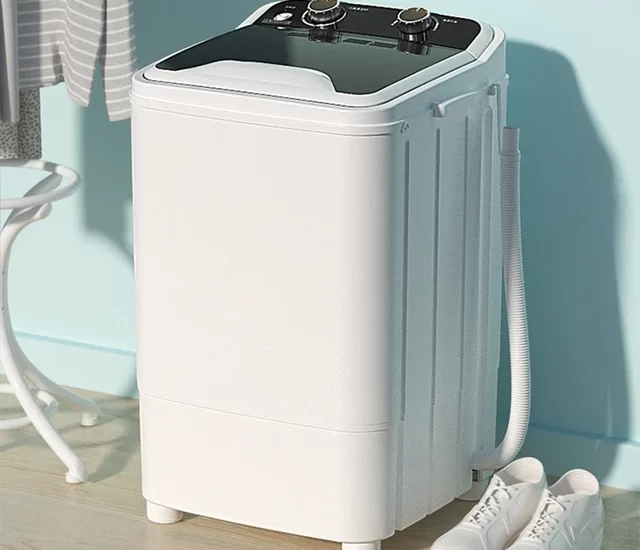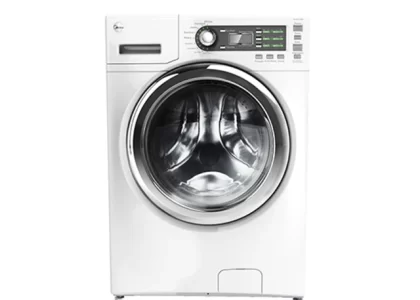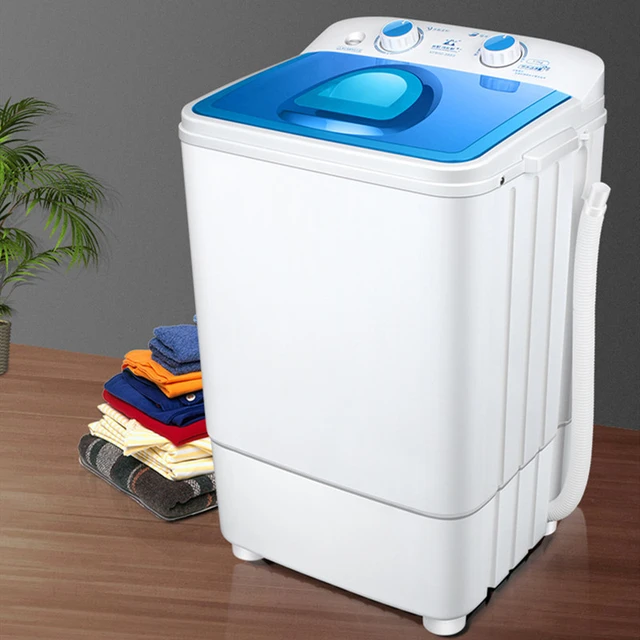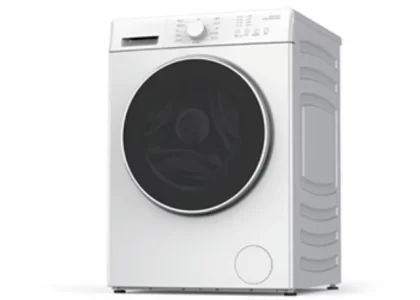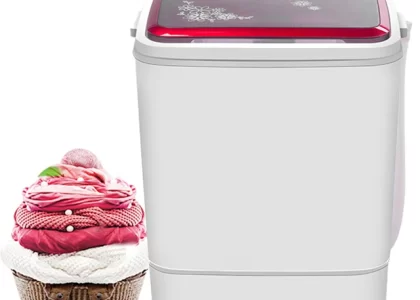 Introduction:
Introduction:
A squeaking washing machine can be an annoying and concerning issue. In this comprehensive guide, we will explore the potential causes of a squeaking washing machine and provide possible solutions to address the problem. By understanding these causes and taking appropriate actions, you can eliminate the squeaking noise and ensure smooth and quiet operation of your washing machine.
Here are some potential hazards or drawbacks of a squeaking washing machine:
When a washing machine squeaks during operation, it can indicate potential problems or hazards that should be addressed. Here are some potential hazards or drawbacks of a squeaking washing machine:
Malfunctioning Parts:
A squeaking noise in a washing machine could be a sign of malfunctioning or worn-out parts. Common culprits include the drive belt, motor, bearings, or drum. Ignoring the squeaking sound can lead to further damage, causing the machine to break down or require costly repairs.
Decreased Performance:
A washing machine that squeaks may experience decreased performance in terms of cleaning effectiveness or overall functionality. The squeaking noise may be an indication that the machine is not operating at its full potential, potentially leaving clothes inadequately cleaned or processed.
Unpleasant Noise and Disruption:
The persistent squeaking noise from the washing machine can be irritating and disruptive, especially in a residential setting. It can disturb sleep or general peace and quiet, making it inconvenient for household members.
Safety Risks:
In some cases, a squeaking washing machine may pose safety risks. For example, a loose or damaged belt could lead to sudden disconnections or entanglement of clothing items. This can potentially damage the garments or cause accidents if someone attempts to intervene while the machine is in operation.
Potential Damage to Flooring or Surroundings:
A washing machine with underlying mechanical issues may vibrate or move more than usual. This excessive movement can potentially damage the flooring or surrounding structures, such as nearby walls or cabinets, if left unaddressed.
It is important to address a squeaking washing machine promptly to mitigate these potential hazards. Consultation with a professional appliance repair technician is recommended to diagnose and resolve the underlying issues causing the squeaking noise. Regular maintenance and inspections of the washing machine can help prevent such issues and ensure its safe and efficient operation.
 Common Causes of Washing Machine Squeaking
Common Causes of Washing Machine Squeaking
Worn or Damaged Belt:
A worn or damaged belt can cause a squeaking noise during the spin cycle.
Inspect the belt for signs of wear, such as cracks or fraying.
Faulty Drum Bearings:
Worn or faulty drum bearings can produce a high-pitched squeaking noise.
Listen for any unusual sounds coming from the rear of the machine.
Misaligned or Damaged Pulley:
A misaligned or damaged pulley can cause a squeaking noise as the belt rubs against it.
Check the pulley for any signs of misalignment, damage, or wear.
Troubleshooting and Resolving the Squeaking Noise
Tightening Loose Components:
Check all screws, bolts, and fasteners on the washing machine and tighten them if necessary.
Loose components can contribute to vibrations and squeaking noises.
Lubricating Moving Parts:
Apply lubricant to the motor, pulleys, and other moving parts that may generate friction.
Use a lubricant recommended by the manufacturer or seek professional advice.
Replacing Worn or Damaged Belts:
Examine the belt for signs of wear or damage, such as cracks or fraying.
Replace the belt if necessary, following the manufacturer’s guidelines or seeking professional help.
Repairing or Replacing Drum Bearings:
If you suspect faulty drum bearings, consult a professional technician for proper inspection and repair.
Damaged drum bearings may need to be replaced to eliminate the squeaking noise.
Adjusting or Replacing Pulleys:
Inspect the pulleys for misalignment, damage, or wear.
Adjust the pulley alignment if possible, or replace the pulley if necessary.
 Preventive Measures and Maintenance Tips
Preventive Measures and Maintenance Tips
Regular Cleaning:
Clean the washing machine drum and agitator to remove any debris or dirt that may contribute to friction and squeaking.
Follow the manufacturer’s guidelines for cleaning and maintenance.
Balanced Loads:
Avoid overloading the washing machine, as it can strain the components and produce noise.
Distribute the laundry evenly in the drum to maintain proper balance during the spin cycle.
Leveling the Machine:
Ensure the washing machine is properly leveled using a spirit level.
Adjust the feet of the appliance if necessary to prevent excessive vibrations and noise.
Using the Correct Detergent:
Use a high-efficiency (HE) detergent specifically designed for your washing machine.
Using excessive detergent or the incorrect type can lead to excess suds, which may contribute to noise.
 Here are some important precautions and tips to keep in mind when using a washing machine:
Here are some important precautions and tips to keep in mind when using a washing machine:
Read the Instruction Manual:
Familiarize yourself with the manufacturer’s instructions and guidelines provided in the instruction manual. This will help you understand the specific features, settings, and maintenance requirements of your washing machine.
Follow Load Capacity Guidelines:
Avoid overloading the washing machine beyond its recommended capacity. Overloading can result in poor cleaning, improper spinning, and potential damage to the machine or clothing. Follow the manufacturer’s instructions for load size recommendations.
Use Detergent and Additives Correctly:
Use the recommended amount of detergent for each wash cycle. Using excessive detergent can lead to excessive sudsing, poorer rinsing, and buildup in the machine. Follow instructions for the proper use of fabric softeners, bleach, or other laundry additives.
Inspect Pockets and Fastenings:
Before loading clothes, check all pockets for items like coins, keys, or tissues. Loose items can cause damage to the washing machine or become stuck in the pump or drainage system.
Close Zippers and Fasten Buttons:
Close all zippers, fasten buttons, and secure any loose straps or strings. This prevents these items from becoming tangled in the washing machine’s drum or damaging other clothing.
Use the Correct Water Temperature:
Select the appropriate water temperature for the fabrics you are washing. Follow garment care labels to determine if you should use hot, warm, or cold water. Using water that is too hot for delicate fabrics can cause shrinking or damage.
Clean the Machine Regularly:
Clean the detergent dispenser, drum, and filters regularly to prevent buildup of detergent residue, lint, or dirt. Refer to the manufacturer’s instructions for proper cleaning and maintenance guidance.
Keep the Machine Balanced:
Ensure that your washing machine is level and balanced to avoid excessive vibrations and noise during operation. Adjust the leveling feet if needed to keep the machine stable.
Unplug when Not in Use:
When you’re not using the washing machine, unplug it from the power outlet. This helps save energy and reduces the risk of any electrical hazards.
Keep Children and Pets Away:
Keep children and pets away from the washing machine while it’s in operation to prevent accidents and injuries. Store detergents and other laundry products out of reach of children.
By following these precautions and tips, you can maximize the efficiency, longevity, and safety of your washing machine when using a washing machine.
 Conclusion:
Conclusion:
A squeaking washing machine can disrupt your laundry routine, but by identifying the causes and implementing the appropriate solutions, you can eliminate the noise effectively. Whether it’s a worn or damaged belt, faulty drum bearings, or misaligned pulleys, proper inspection and relevant repairs or replacements can resolve the issue. Additionally, following preventive measures and regular maintenance practices can help prevent the recurrence of squeaking noises in the future. By maintaining a properly functioning washing machine, you can enjoy quiet and efficient laundry experiences. If unsure or if the problem persists, it’s advisable to seek professional assistance to ensure the proper functioning of your appliance.

